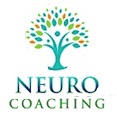| |
Today social media is jammed with airbrushed
perceptions of positivity, happiness and fulfilment
and influencer posts about positive vibes, telling
us not to allow negative energy or thoughts get to
us.
Instead of facing their own darkness many people
start to follow the latest “feel good” New Age fad
they find. The so called gurus, prosperity
preachers, and law of attraction pushers use the
‘feel positive all the time’ that blocks anything
negative that doesn’t fit in with their teachings to
keep people hooked. Hooked on buying their courses,
books, products. It’s so easy to get drawn into this
promised world of joy and happiness…but it’s not
realistic.
It is not just unrealistic, but also a recipe for
never growing or truly learning who you are.
Two of Carl Jung’s major Archetypes are The Persona
(what we would like to be and how we wish to be seen
by the world) and The Shadow.
The Shadow Self is an archetype that forms part of
the unconscious mind and is composed of repressed
ideas, weaknesses, instincts, impulses, desires,
perversions and embarrassing fears. This archetype
is the darker side of the psyche, representing
wildness, chaos and the unknown. Jung believed that
these dispositions are present in all of us and are
can form a strong source of energy that can be used
for both good and bad purposes..
There is a shadow side to almost every positive
thing we can do for ourselves, including
self-development and spiritual practice.
The dark shadow traits, in the corners of our
unconscious minds, never become adequately
integrated into most people’s conscious minds
because they never recognize their shadow self. Most
people simply continue on accumulating dark desires,
motivations and fears. The danger is that the
unchecked shadow can become a dark behavioral driver
fuelled by negative emotions. Hence the important
need to identify, integrate and learn how to manage
our Selves and the emotional energy that drives
them.
Like it or not, the ugly parts of our humanity are
where growth can occur. Shadow avoidance shields us
from the truth, it disconnects us from our feelings,
and helps us avoid the big picture of our life.
The unchecked shadow can become a dark behavioral
driver fuelled by negative emotions. Hence the need
to identify, integrate and learn how to manage our
Selves and the emotional energy that drives them.
Emotions can serve as flags indicating an
opportunity for us to learn. Challenge, sorrow,
change, discomfort, conflict, hatred, depression,
and anxiety are paths to growth and change. We can
explore and accept the parts of ourselves we are
urged by others to keep hidden. Painful or
uncomfortable experiences enable us to grow past our
current emotional and spiritual states.
Shadow avoidance can result in emotional repression
and numbing, , unbalanced emotional development,
detachment, spaciness, negation of the self,
exaggerated “positive thinking,” a devotion to
health fads and special diets, tolerance for bad
behavior, weak boundaries, lack of moral compass,
self-judgement, and delusions of “higher” grandeur
(the false notion of having reached or reaching
“enlightenment”).
The quick-fix, pain-numbing fashion prevalent at the
moment negates truly entering into the darkness and
facing and working through our pain. Shadow
avoidance has the toxic by-product of feeding the
desire for pleasure to avoid our pain. This
collective lack of willingness to seek deeper
terrain is simply masking our raw and wild, primal
self.
Plastic fast-food spiritual fads like “manifesting,”
“tantra,” and the like have become common norms and
filled up the vacuum left by the slow disintegration
of mainstream religions.
There is a place for positivity, but most of the
time it is used an avoidance tool, which is
dangerous.
All of us, at times, get stuck in a pattern of
negative emotions. Sometimes we need an unbiased
third party to help us see what we are running from
or challenge us to face what we are unwilling to
feel. Friends and loved ones can’t do it for us; we
have too many emotional ties.
Doing this difficult work with an accredited Neuro
Coach, can lead to lasting change, personal growth.
It takes real courage to stop pretending you have it
all together and face your shadow, your sadness,
that side of you that contains all the parts of
yourself that you don't want to admit to having. It
is at first an unconscious side. It is only by
becoming totally aware of our various Selves that we
can recognize, acknowledge and work with our shadow.
The path of individuation asks for total integration
of all facets of the self. We shouldn't diminish
what we are experiencing by undertaking fake
positivity. Uncovering and understanding the self is
a lifelong journey that demands rejection of the
mask of positivity. How can you be yourself if you
do not know that self? The path of individuation is
through self-knowledge.
The universe exists only because there is an
equilibrium of dark and light. That’s the human
challenge.
Mindfulness and meditation are powerful tools to
help prepare the mind and brain for change. Whereas
it's the evidence-based, neuropsychological change
(brain-mind-body) models that provide us a
structured path for self-growth and self-management.
Accredited Neuro Coaches employ Advanced
Neurocoaching Change Models capable of changing
their clients mindsets (Key Behavioural Drive
Emotions with attached Beliefs and Attitudes) in an
accelerated learning and empowering environment.
Many practitioners claim to use neurocoaching simply
for marketing purposes. On close scrutiny of their
coaching models they are merely attaching a new name
to the old school counselling model; that is, they
use a skills base coaching model with results that
are not measured and more importantly, sustainable.
Neurocoaching goes beyond false promises about
change and utilizes a research-based and
scientifically validated Brain-Mind-Body Approach.
Neurocoaching integrates research from many proven
disciplines into a user-friendly model of practice.
A genuine Neurocoaching intervention employs
Cognitive Neuroplasticity Models of Change that are
experiential in nature and also integrate the
following key psychological principles and
techniques : Self-actualization, Self-Concept, Self
Esteem, Self Identity and Working in the Conscious,
Unconscious and Super Consciousness Zone, Direct
Visualization.
Changing behavioral drivers cannot be achieved by
using the many simplistic, outdated models of
coaching still widely promoted in the coaching
industry/literature.
Many so-called "certified coaches" churned out by
the scores of online coach training providers are
simply doing more harm than good. Meantime, many
large, high-profile coach training schools are
teaching ‘old-school’, outdated, simplistic models
of coaching dressed-up as Neurocoaching that in
reality are just re-labelled, old performance
counselling strategies or, in some cases,
scientifically unproven fuzzy techniques such as NLP
or neurolinguistic programming. NLP is regarded as a
pseudoscience and not a true science. It is not
accepted in any serious scientific circles and no
college teaches NLP. Very few psychologists even
know it and it lacks credibility in the corporate
arena.
There is a “new alliance” between neuroscience,
psychotherapy and new school coaching that is now
taking place.
The Neurocoaching Diploma Course places graduates at
the forefront in the coaching world marketplace by
providing them with world-best-class, cutting-edge,
proven Change Models and Tools.
The Institute's Graduate School of Neuroscience renowned Masters Level coach
training course in NEUROCOACHING:
The Institute's (established 1994)
globally recognized, credentialing,
Diploma Course in Neurocoaching
provides the latest, cutting-edge neurocoaching
technology, proprietary tools and techniques. Clients include many of the world's top 100 companies. |
|







